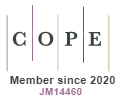Semiotic aspects of Peircean philosophy as foundation for the education of thought
DOI:
https://doi.org/10.5585/dialogia.N29.8807Keywords:
Peircean semiotics. Education. Mind-matter relation. Falibilism. Cultural relativism.Abstract
This article aims to propose some concepts of the Peircean philosophical framework as a foundation for the formation of a broad critical thinking. Starting from semiotic concepts such as sign, object, interpretant and their unfolding, in connection with metaphysical concepts such as objective idealism, synechism and fallibilism, it is possible to glimpse the development of a logical and comprehensive perspective on human reality, capable of integrating several points of view in an inclusive manner and, therefore, capable of encompassing scientific and cultural differences in an intelligible form amid the contemporary social heterogeneity. The present research, through analysis and conceptual applications, seeks to evince that an education aimed at the development of human mental faculties, by emphasizing the representational aspects of thought, culture and science, can enable man himself to discern more clearly his own cultural an scientific creations, as well as the role he plays in their production.Downloads
Download data is not yet available.
Downloads
Published
2018-08-24
How to Cite
JUNGK, Isabel. Semiotic aspects of Peircean philosophy as foundation for the education of thought. Dialogia, [S. l.], n. 29, p. 69–82, 2018. DOI: 10.5585/dialogia.N29.8807. Disponível em: https://periodicos.uninove.br/dialogia/article/view/8807. Acesso em: 13 sep. 2024.
Issue
Section
Dossiê Temático: Educação e Multiculturalismo






